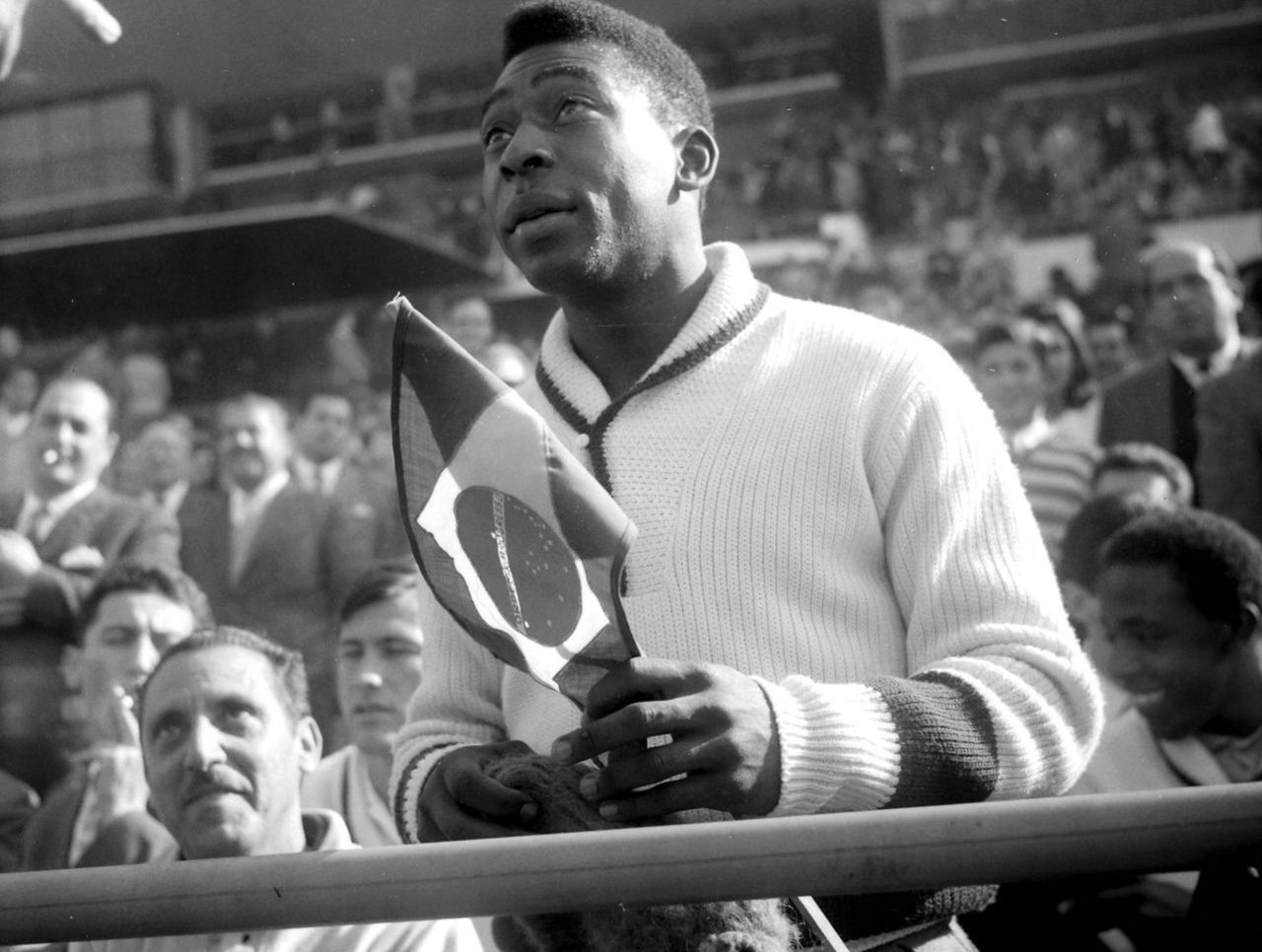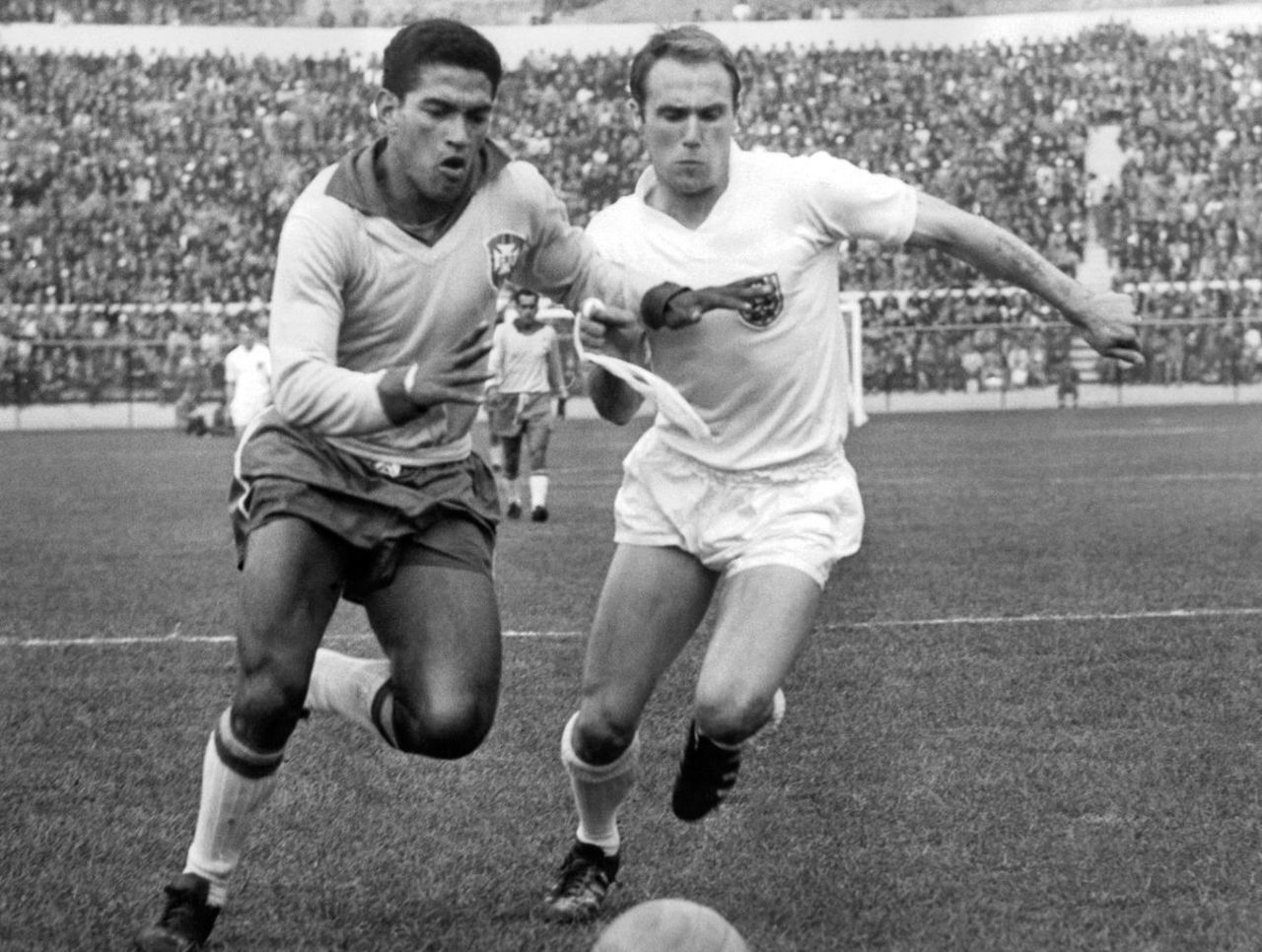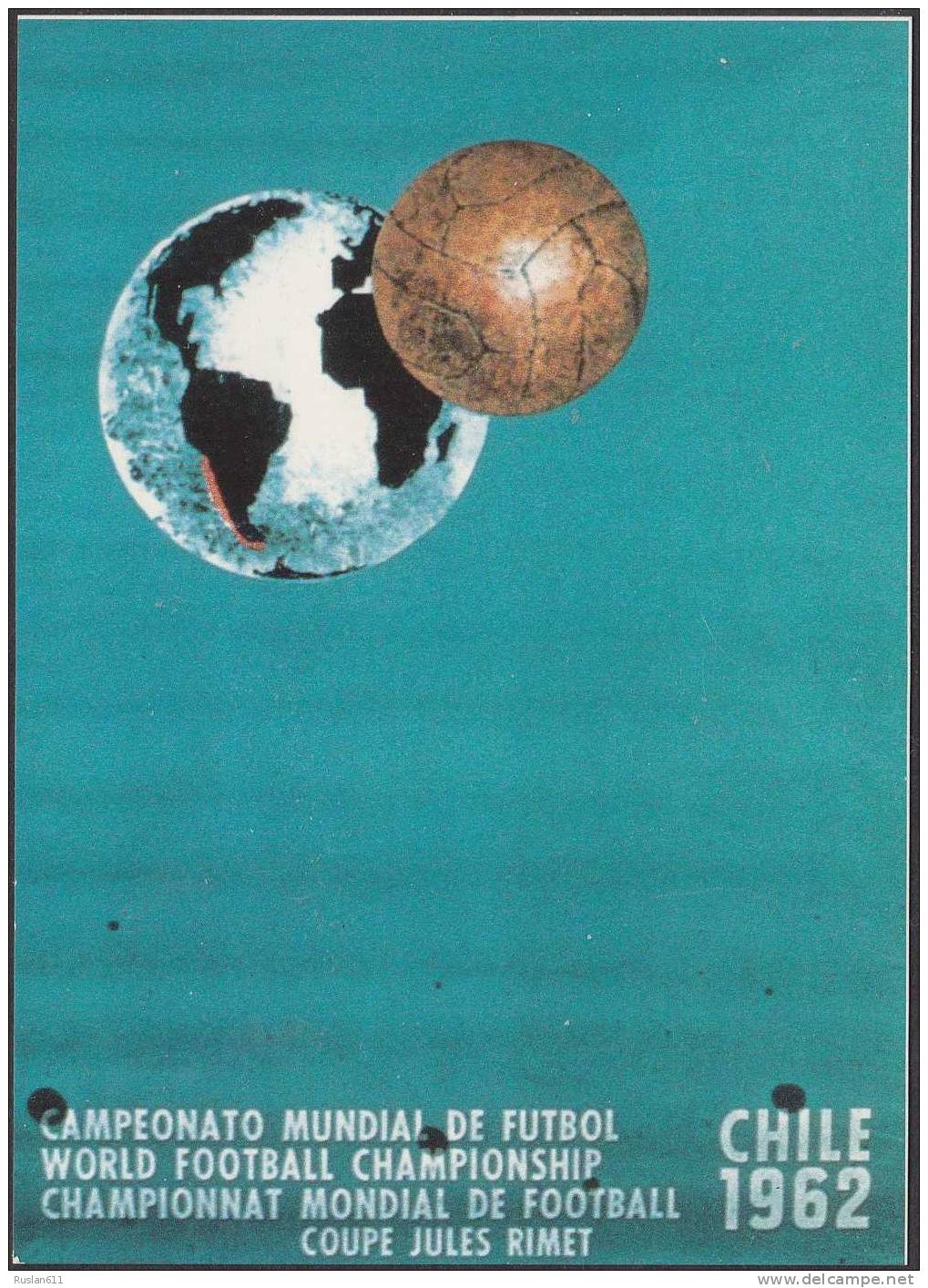What happened at the 1962 World Cup?
In the weeks leading up to the 2014 World Cup in Brazil, we'll set the scene for the next version of the greatest sporting event in the world by reliving each of its predecessors. We continue the build up today with the seventh World Cup, and the first to be played in South America in a dozen years.
Who: 16 squads from Europe (10), North America (1) and South America (5).
What: The seventh World Cup, and the first to be held in South America since 1950.
Why: Football, bus parking and yellow journalism.
When: May 30, 1962 to June 17, 1962.
Where: Four cities across Chile.
The Final: Brazil 3 - Czechoslovakia 1

The run of good luck behind Czechoslovakia’s Cinderella run looked like it might continue in the final when Josef Masopust put his team ahead after only 15 minutes. While lesser squads might have crumbled underneath a one goal deficit, early adversity was nothing new for the Brazilians. Amarildo — who replaced the injured Pele earlier in the tournament — equalized two minutes later when a mistake from Czechoslovakian keeper Viliam Schroijf gifted him an opportunity.
Deadlocked at one after the first half, the Brazilians came alive in the second. Unanswered goals from Zito and Vavá (after another error from Schroijf) put the match out of reach for Czechoslovakia, and gave Brazil the second successful title defense in World Cup history.
How Did It Happen?
Back-to-back tournaments in Europe had the South American contingent threatening boycott if the 1962 event didn’t take place on their continent. FIFA was quick to relent, discouraging a bid from West Germany.
As a result, most anticipated the tournament would be held in Argentina, but FIFA asked Chile to put together a bid so that their neighbors wouldn’t win hosting rights without a contest. The symbolic bid became something more when Chilean delegates took advantage of Argentinian complacency to travel and convince other football associations of their capabilities.
Their efforts worked, and once again, Argentina was left on the outside looking in.
Golden Boot
Garrincha (Brazil), Vavá (Brazil), Leonel Sánchez (Chile), Flórián Albert (Hungary), Valentin Ivanov (Soviet Union) and Dražan Jerković (Yugoslavia) all scored four goals.
Major Innovations
Goal average was used to decide who would advance if two teams finished with the same amount of points in the group stage; and
Italy and West Germany’s use of the catenaccio system resulted in fewer goals being scored than in any previous tournament.
The Controversy
After 83 minutes of abuse from Chilean defenders, Brazilian winger Garrincha finally retaliated. His brief lack of discipline was met with an immediate red card that should’ve resulted in him missing the final. However, the Brazilian football association managed to get the ban overturned by FIFA, who justified its decision by suggesting the player had been provoked by the crowd.
Because that makes it all better.
England’s Yellow Kit

Brazil and England’s quarterfinal match was interrupted by a stray dog that ran onto the pitch, and managed to evade players and officials who tried to capture it. Finally, England striker Jimmy Greaves got down on all fours, and managed to lure the dog. He quickly swooped it up, but as he brought it to the touch line, it urinated all over him.
That's funny enough on its own, but consider that England were wearing their all-whites for the match, and the hilarity only increases.
The dog was later given to Garrincha, who had laughed uncontrollably at the sight of it peeing all over his opponent.
Craziest Match: Chile 2 - Italy 0 (The Battle of Santiago)
The background: In 1960, Chile’s preparations for the World Cup were interrupted by the strongest earthquake ever recorded. Despite this disaster, Italian journalists Antonio Ghirelli and Corrado Pizzinelli complained bitterly about the lacking infrastructure and poor conditions in Santiago.
Local newspapers picked up on their discontent, and magnified it as a means of inflaming Chileans, and making Italy public enemy number one ahead of their group stage match against one another.
The highlights (read: lowlights):
12 seconds after kickoff, the first foul is committed.
Girogio Ferrini (Italy) is sent off in the 12th minute after a vicious foul on Honorino Landa (Chile).
Landa punches Ferrini.
Ferrini refuses to leave the pitch, and is eventually dragged away by police.
Leonel Sanchez (Chile) punches Mario David (Italy) in the face.
David kicks Sanchez in the head.
David is sent off.
Sanchez breaks the nose of Humberto Maschio (Italy) with a punch to the face.
Police intervene on three separate occasions over the course of the match.
The quote: BBC commentator David Coleman introduced the tape delayed match to viewers back home as “the most stupid, appalling, disgusting and disgraceful exhibition of football, possibly in the history of the game.”
You only get one shot, do not miss your chance to blow / This opportunity comes once in a lifetime yo
Alfredo di Stefano pulled a muscle in his leg just before the tournament, ruling him out of Spain’s lineup. The legendary Real Madrid forward is considered the best player to never play in a World Cup.
Quick On The Draw
It took Czechoslovakia's Vaclav Masek all of 15 seconds to score against Mexico in their group state clash. It would remain the fastest goal in World Cup history until 2002 when Turkey's Hakan Sukur scored 11 seconds into their third place game against South Korea.
Legacy

This was the worst World Cup to date. Stingy defensive systems, violent matches and an injured Pele conspired to make the 1962 tournament the one soccer historians most want to forget. Not even a surprising — and well-earned — third place finish from the hosts was enough to redeem a boring, bloody and lackluster tournament.
About the best thing you can say about the 1962 World Cup is that, at least the best team won the tournament.
HEADLINES
- German soccer federation official wants World Cup boycott considered
- Massive World Cup demand means ticket resellers could win big
- France not considering World Cup boycott over Greenland for now
- FIFA received more than 500M ticket requests for 2026 World Cup
- Pogba's World Cup dream fades as injuries take toll on former France star